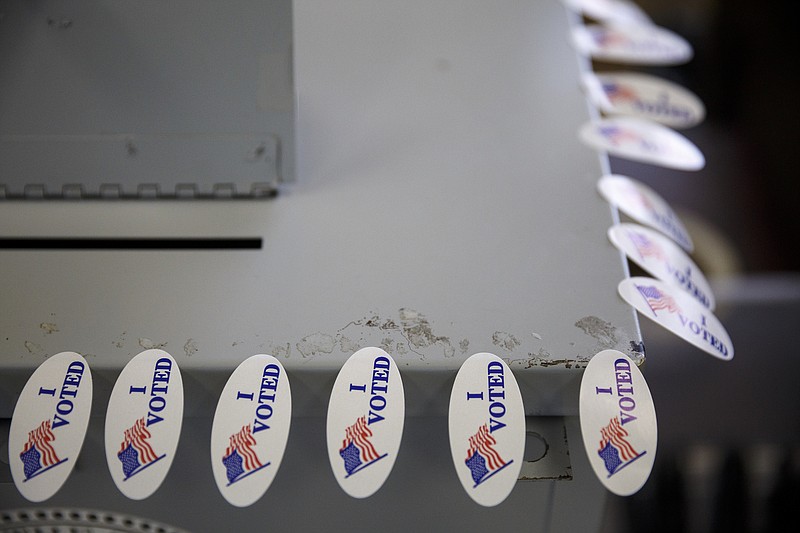As the November election draws closer, Americans should pay attention to reports of plans to create disruptive circumstances that could sow chaos in precincts nationwide. It is not just African Americans and other voters of color whose right to vote could be at risk. Voters, and precincts, that are likely sources of votes for Democrats could also be at risk.
No one should be surprised by ominous reports - notably Franklin Foer's article in the June issue of The Atlantic - that Russia and other parties are expected to mount even more sophisticated efforts to undermine the integrity of the election.
But it also makes sense to expect that previous acts of voter suppression, updated with more sophisticated tactics, could be deployed on behalf of President Trump's campaign for a second term and Republicans' effort to protect their Senate majority.
All of which leads, improbably, to the matter of role reversal. The concept usually refers to families where adult children must assume the role of parenting their mothers or fathers who are unable to care for themselves. For example: bathing my father when he was afflicted with dementia.
After the Civil War, Democrats who dominated states in the South passed "Jim Crow" laws that, among other things, denied blacks the right to vote. But in recent years a political version of role reversal has occurred - except it is Republicans using methods to weaken voting rights for those considered likely to favor Democrats.
Ten years ago, on ABC's This Week program, Michael Steele - the first African-American chairman of the Republican National Committee - said the GOP "fought very hard in the '60s" for the civil rights and voting rights bills enacted in 1964 and 1965.
Steele was right. When Congress approved the 1964 civil rights act, 80 percent of House Republicans and 82 percent of GOP senators voted for it. The following year, Republican support for the Voting Rights Act was stronger - 82 percent in the House, 94 percent in the Senate.
Now, 55 years after expanding Americans' most fundamental right, the GOP is ramping up its campaign to undermine voting rights. As The New York Times reported on May 19, "the Republican Party, the Trump campaign and conservative activists are mounting an aggressive national effort to shape who gets to vote in November - and whose ballots are counted."
The foundation of that effort is the GOP's usual suspect: Republicans believe their victory in November is "imperiled by widespread voter fraud," according to The Times, even though extensive nonpartisan research has shown that in-person voter fraud is virtually nonexistent.
President Trump is leading the fight by railing that the November election will be "rigged" against him.
After he won in 2016, Trump claimed that "millions of people" voted illegally for Hillary Clinton. And later: "In addition to winning the Electoral College in a landslide, I won the popular vote if you deduct the millions of people who voted illegally."
Perhaps the ugliest example of attempted voter suppression recently occurred in Florida. In 2018 Floridians overwhelmingly approved Amendment 4, giving ex-felons the right to regain their vote.
In response, the majority Republican legislature passed a law requiring ex-felons to repay the costs of their prosecution before regaining their vote. On May 24, a federal judge ruled that the law was unconstitutional, thereby re-enfranchising some 1.4 million ex-felons.
You have to wonder: Got any idea how they will vote in November?
Michael Loftin is a former opinion page editor for The Chattanooga Times.
